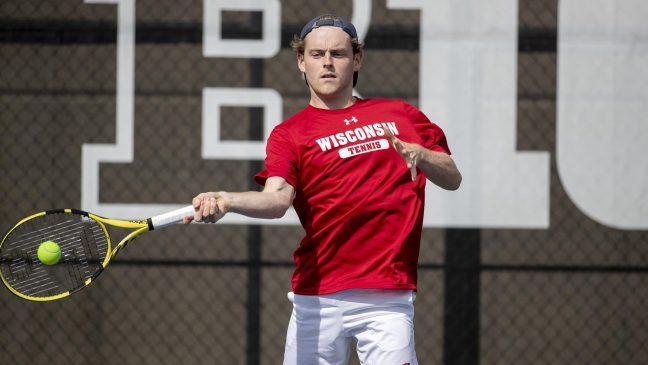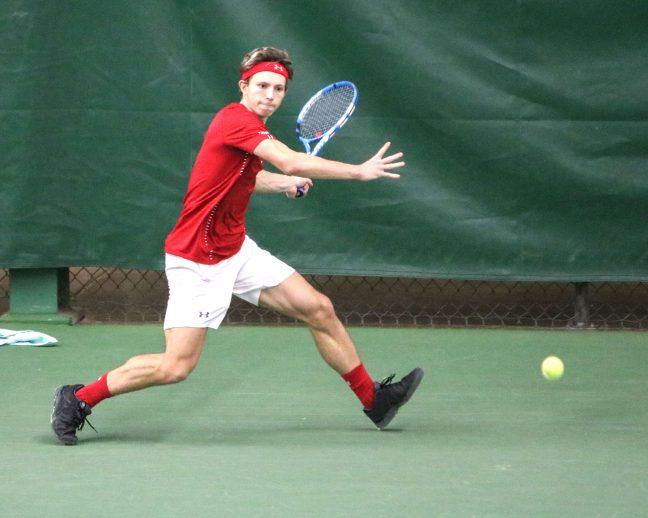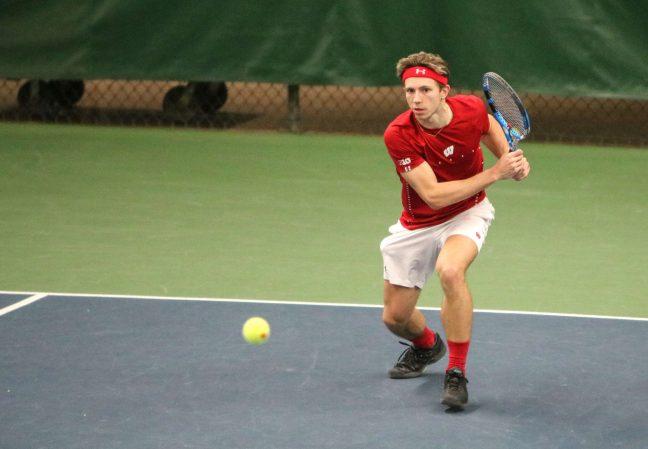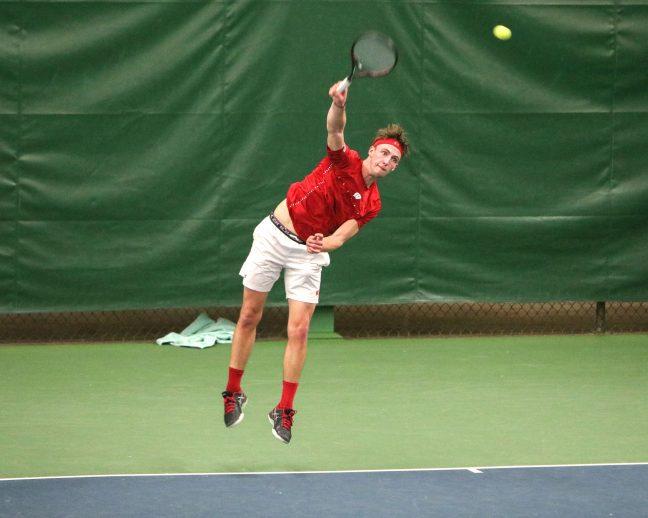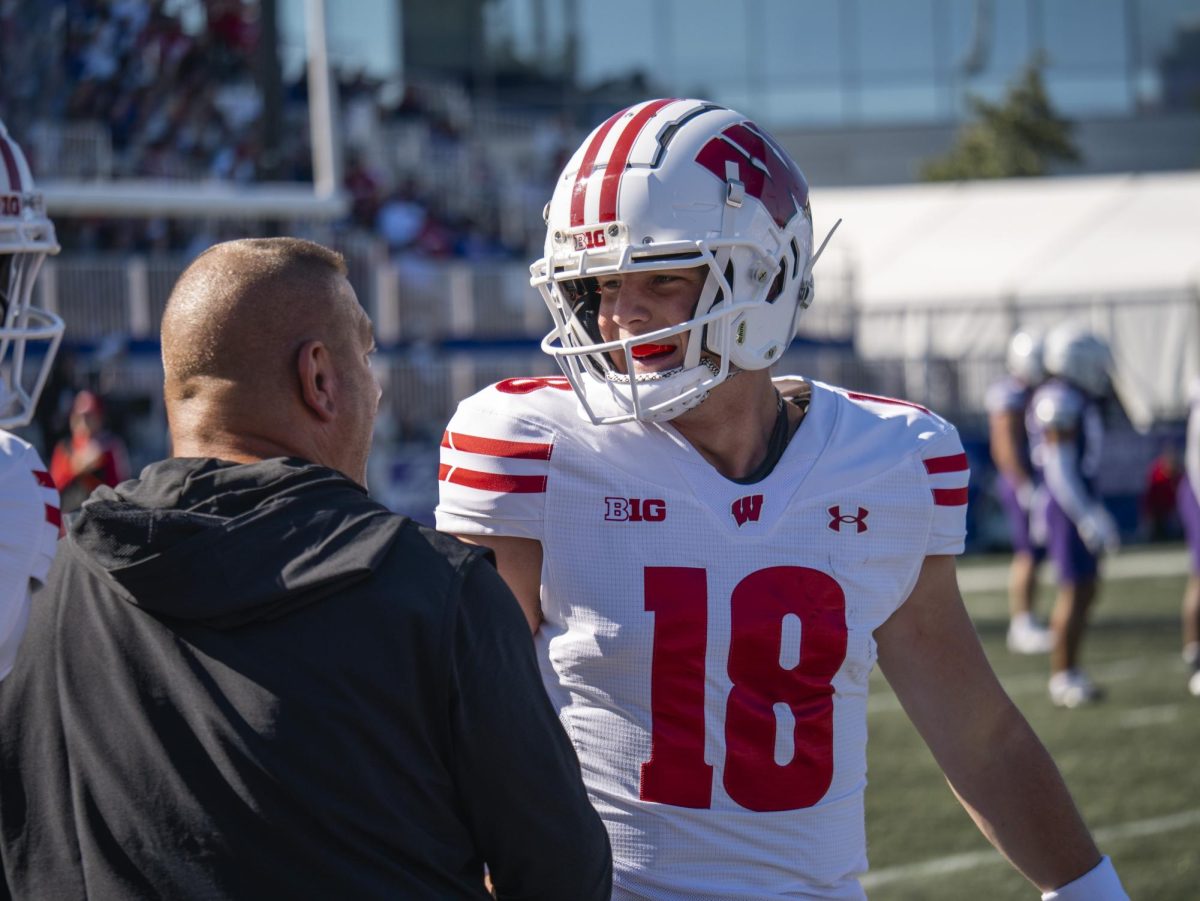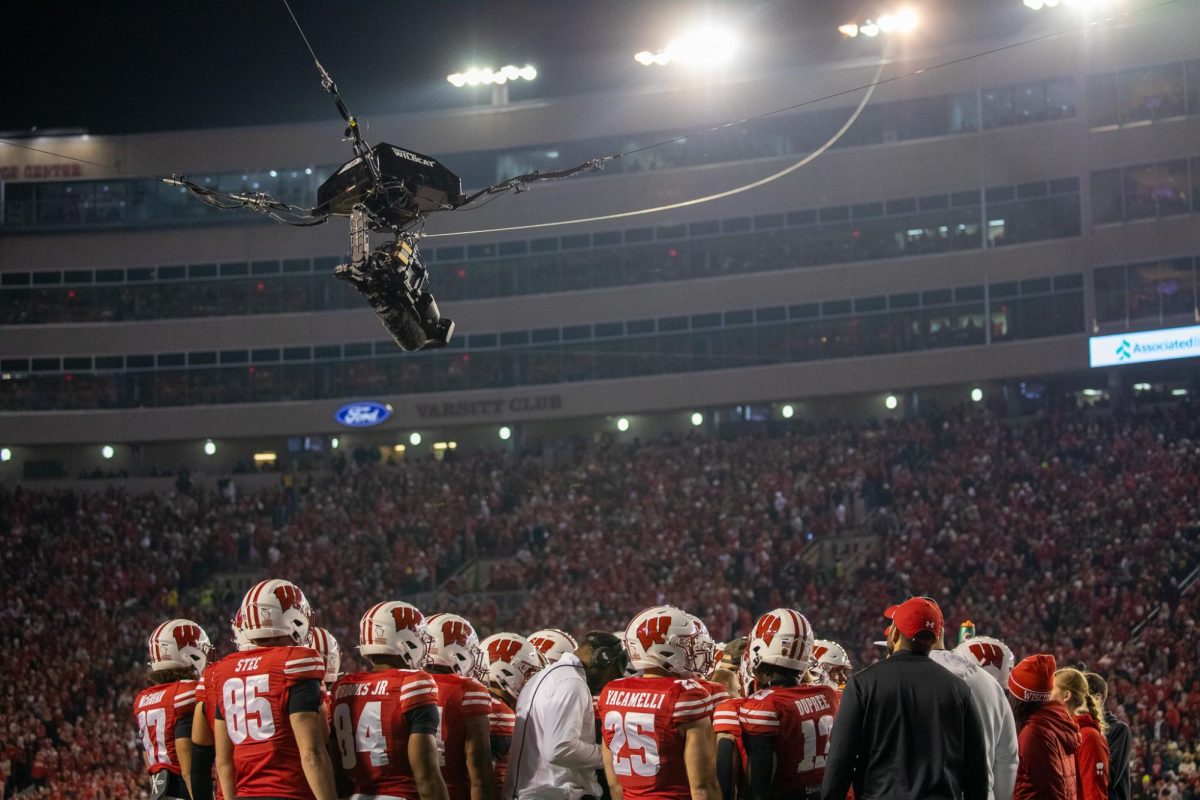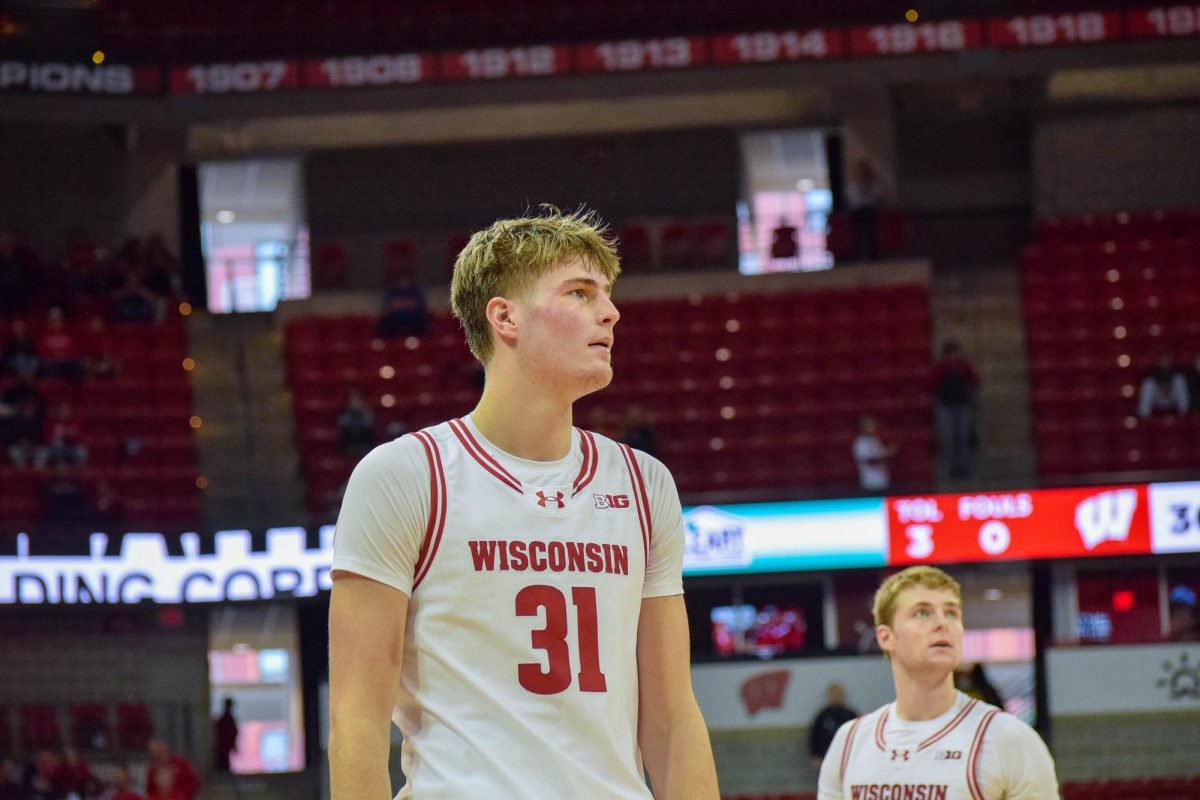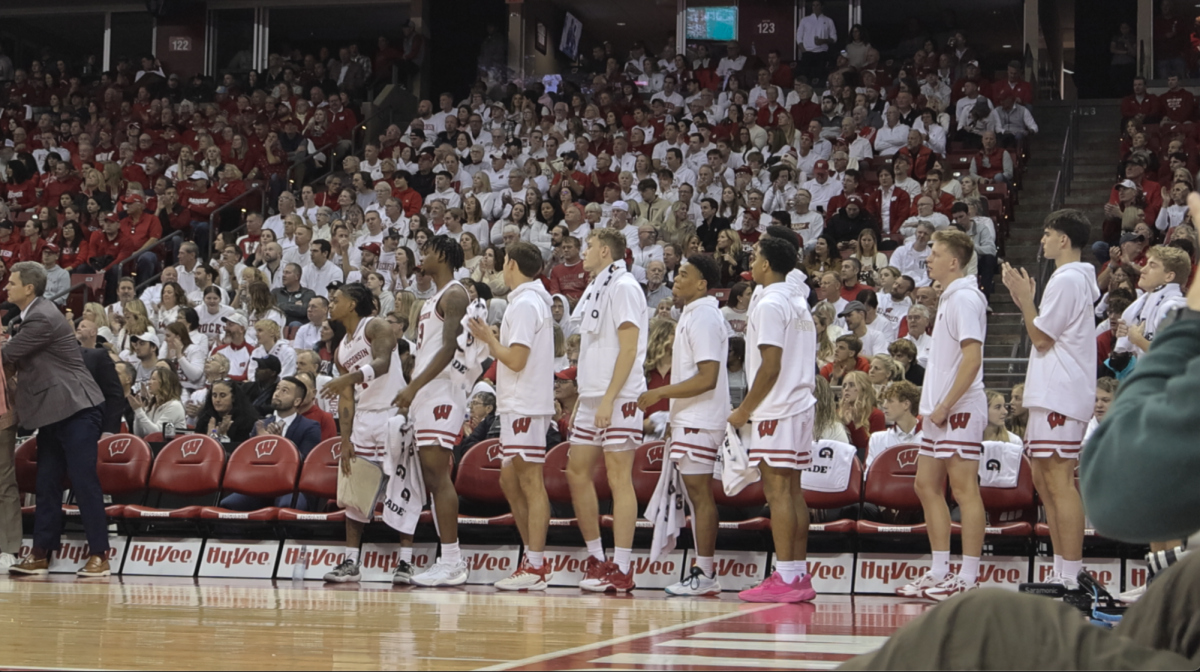Like a roller coaster, the 2012 season for the Wisconsin men’s tennis team (12-12, 4-8 Big Ten) consisted of exhilarating highs and gut-wrenching lows for a young squad that was forced to rebuild from last season with a majority of underclassmen and an absence of senior leadership.
The group of inexperienced players posed a significant problem for Wisconsin in that its identity had yet to be established through a large chunk of the season.
Aggravating this issue was the challenge of facing three opponents ranked nationally in the nation’s top 30 early in the non-conference schedule. In this three-match span, the Badgers earned just one singles victory but clinched the opening doubles mark in the latter two contests.
This success in doubles early in the season foreshadowed a positive trend for the Badgers, as they sealed the doubles point in 13 of 21 matches throughout the season.
Head coach Greg Van Emburgh’s expertise in the two-man game was a clear reason for the high achievement of the doubles – he had a prosperous career as a professional doubles player, winning six doubles titles and breaking into the top 40 in the world ranks in 1993.
Van Emburgh’s experience with doubles allowed him to present a unique perspective on its tactics to the team.
“Doubles is something we’ve tried to spend a lot of time,” Van Emburgh said. “[We] try to improve guys to become better doubles players and also better positioning throughout the doubles process.”
Wisconsin’s prized tandem this season was the combination of junior captain Billy Bertha and sophomore Fredrik Ask. The duo owned a team best 11-6 record with four wins coming against ranked opponents, including prominent victories over the nation’s No. 2 duo of Kevin King and Juan Spir of Georgia Tech and Michigan’s top team of No. 15 Evan King and Shaun Bernstein.
The top Badger doubles team was selected to compete in the 2012 NCAA Division I Men’s Tennis Doubles Championships as an at-large bid.
The pair has significant differences in its individual strengths – Bertha is a 6-foot-5 righty boasting a powerful serve and dominating presence, while Ask is characterized by a unique left-handed swing, with the use of heavy top-spin on his groundstrokes and an acute touch at the net.
Bertha attributed the team’s success to friendship off the court as well as a natural chemistry.
“We’re able to work hard and work through any situations or tough times we have because we’re able to communicate well with each other,” Bertha said. “Both of our games complement each other well.”
While the Badgers’ doubles play guided the team through difficult stretches, they struggled to achieve the same level of success on the singles court. It was often the case that Wisconsin battled to win the doubles point, but failed to stay competitive during the majority of singles matches. During a five-match losing streak in the beginning of Big Ten play, Wisconsin secured the doubles point on three occasions, but earned a total of two singles wins.
The Badgers were finally able to produce their first Big Ten win of the season after beginning conference play with six consecutive losses with a 5-2 home victory over Penn State. It was the first time in the conference schedule that Wisconsin displayed a strong showing on both the doubles and singles court.
“I think everybody kind of felt like we got our first win, and now we can really relax and play some great tennis,” Van Emburgh said. “Now we’ve got that win to really boost our confidence for the remainder of the year.”
Wisconsin was unable to discover a winning singles lineup until that point in the season. Sophomore Rod Carey started the year playing in the No. 5 slot before jumping ahead in the lineup to the second position, where he finished the season by winning four of five matches in that spot. The Bahamas native was awarded the team’s MVP honors this season.
After suffering a back injury that kept him away from action for two weeks, Bertha returned to the lineup thriving at the No. 6 position, where he posted an unblemished 4-0 record.
Van Emburgh understood that the right singles lineup could determine a team’s success and knew he had the players to compete in the Big Ten.
“I think we’re real solid throughout four, five and six, and I think one, two and three can play with anybody, and that’s not always the case,” Van Emburgh said.
Following the early conference struggles was an inspiring finish to the regular season, as the Badgers won four of their final five matches, finishing with a thrilling 4-3 victory over Big Ten newcomer Nebraska, which was decided by junior Alexander Kostanov’s triumphant third-set effort.
As the No. 8 seed in the Big Ten tournament, the Badgers were faced with the familiar Cornhuskers in the first round, just four days removed from that encouraging final regular season matchup. However, the Badgers were unable to attain a single point in a disappointing 0-4 defeat.
Although Wisconsin did not achieve a top finish in the regular season or a team NCAA bid, Carey explained that the team grew as a whole from the start of the season, maturing into a serious threat in the Big Ten.
“I think we’ve improved a lot, the whole team,” Carey said. “We’re all playing a lot better from the start, [we’re] in a lot better place mentally and focusing a lot better on the court.”


